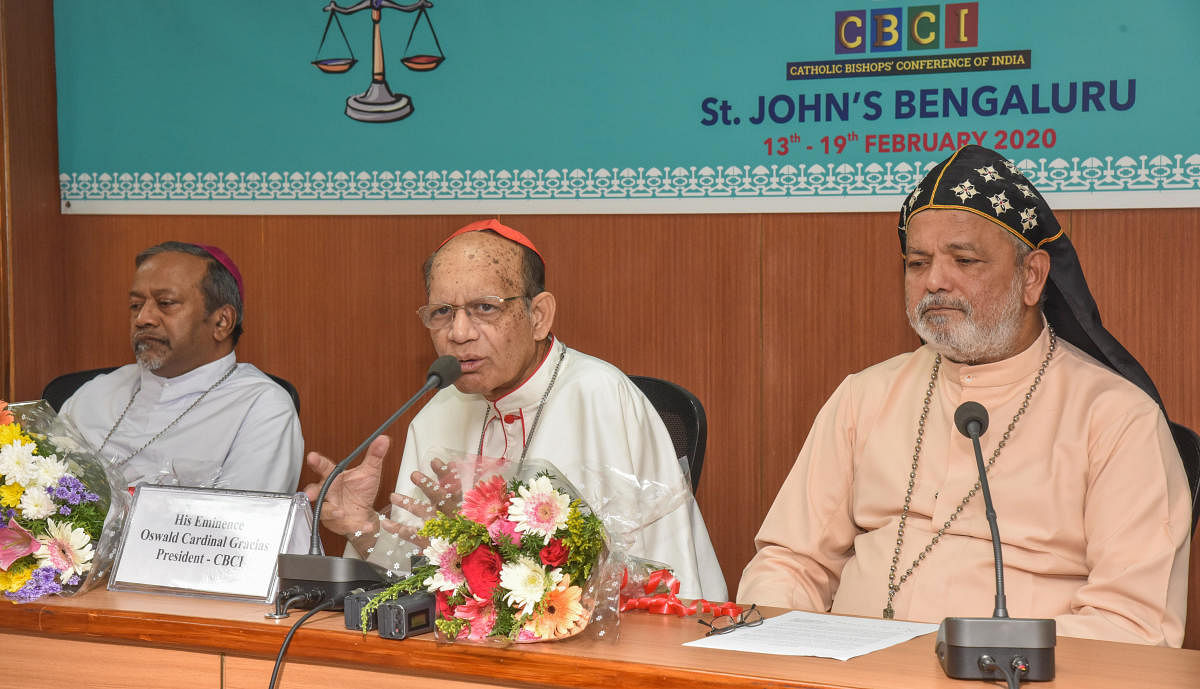
The Catholic Bishops’ Conference of India (CBCI), the apex body of the Catholic Church in India, on Wednesday outlined the Church’s stand on various issues ranging from CAA protests to medical termination of pregnancy.
CBCI officials addressed a press conference in the city on Wednesday, ahead of the five-day 34th Biennial Plenary Assembly at St John’s Hospital, Bengaluru, starting on Thursday, of over 200 Bishops from India.
Oswald Cardinal Gracias, CBCI’s president, in December last year had said that religion cannot be a criterion for citizenship. But the CBCI as a body had not taken a clear position on the matter.
On being questioned by reporters, Gracias said, “The government should have a dialogue with anti-CAA protesters. ‘Dialogue: The path to Truth and Charity’ is the theme of the Assembly. Though we do not have CAA on the agenda, I’m sure it will come up and we will discuss it.”
The Union Cabinet recently approved the Medical Termination of Pregnancy (Amendment) Bill, 2020 (MTP Bill, 2020) which will soon be tabled in Parliament. It seeks to amend the Medical Termination of Pregnancy Act, 1971 (MTP Act) and increase abortion limit from 20 weeks to 24 weeks.
Gracias said the Church is opposed to this. “I was not in the country when the Cabinet approval came. But the Church certainly opposes this and is pro-life. We along with pro-life organisations will meet government authorities regarding this,” he said.
The Franciscan Clarist Congregation (FCC) had expelled 52-year-old Sister Lucy Kalapura in August last year citing “serious indiscipline” but the nun had said she was being victimised for supporting the agitation for the arrest of the rape-accused deposed bishop of Jalandhar, Franco Mullakal.
On being questioned if the nun was being victimised for raising her voice, Gracias told reporters, “In her case, we found internal violations. So, the expulsion is justified.”
Though the Christian population is 2% and the Catholic population is much less at over 1% and not a significant vote bank for the ruling party, they can engage in dialogue with all groups of society be it civic bodies, government and non-government organisations and with people of other convictions to create a peaceful environment for all to live, Gracias said.
